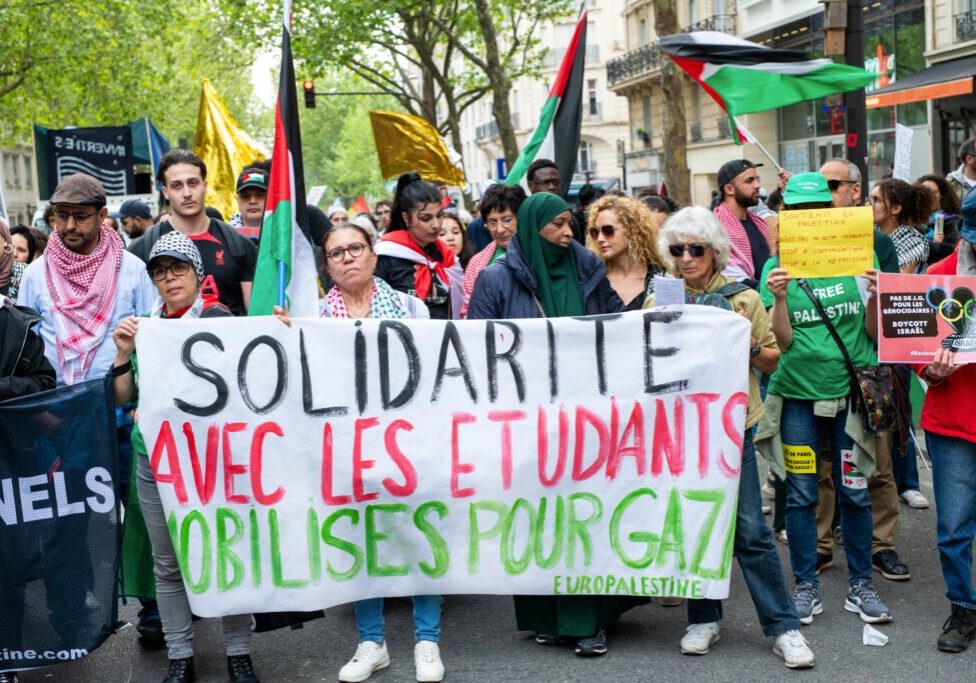Australia/Israel Review
Europa Europa: Blowing Hot and Cold
May 27, 2009 | Douglas Davis
Douglas Davis
Israel’s 60th birthday produced a treasure trove of gifts from Europe. There was excited talk about the prospect of a strategic dialogue and more excitement about a business dialogue. But the jewel in the crown was the suggestion of a “privileged partnership” which would bring closer political, diplomatic and trade links with Europe. Happy days.
That was then. One year later, the generous European heart has hardened. With the Gaza operation complete and Binyamin Netanyahu installed in office, the talk now is of freezing, even rolling back, Europe’s relations with Israel. As one British Foreign Office official put it with boyish glee, “we’re back in business.”
Europe’s External Relations Commissioner Benita Ferrero-Waldner responded swiftly to Netanyahu’s return with a barely veiled threat: “We expect a clear commitment from the new government to pursue negotiations with the Palestinians,” she said. “We expect a stop of all activities undermining our objective to a two-state solution… The ball is now in the court of Israel.”
Ferrero-Waldner followed that by instructing officials at the European Commission to suspend implementation of the “upgrade” and to freeze discussions with Israel on all practical aspects of implementing the still-born policy. That might not be the end of the story. “It wouldn’t surprise me,” said one European diplomat, “if people like Fererro-Waldner were working not on an upgrade, but on a downgrade.”
Meanwhile, Netanyahu dismissed the threat: “Don’t set conditions for us,” he shot back. “Peace is in Israel’s interest no less than it is in Europe’s interest, and there’s no need to make the upgrade in relations with Israel conditional on progress on the peace process. We are in the process of reviewing our policy. Don’t rush us.”
Threats to Israel’s economic engagement with Europe are seriously bad news for Jerusalem. Europe is, after all, Israel’s single largest commercial partner, with annual trade volumes amounting to US$36.7 billion in 2007 (trade with the US for the same period amounted to US$33.8 billion). And that, as they say in financial circles, is not chopped liver.
But it is not only a matter of the bottom line. True, Israeli political leaders of all shades harbour deep suspicions about Europe’s involvement in Middle East diplomacy, and European actions invariably reinforce those suspicions. But Ferrero-Waldner’s bitter hostility towards Israel carries a powerful psychological punch.
Isolated in their own region, many Israelis draw succour from what they perceive to be a close, natural affinity with Europe. They are not strangers in European art galleries, concert halls, theatres and museums. On the contrary, they are perfectly at ease, even at home, in the cultural ambience of London, Paris and, yes, even Berlin. What Israelis have failed to grasp is that while European culture might appear familiar, the culture of Europe has undergone a sea-change.
Israel has remained more or less committed to its founding value system, but the Europeans have moved on. Eviscerated Europe, mired in corruption and confusion, inhabits a value-free, non-judgemental vacuum. It has traded religion, self-defence and nationalism for love, peace and dreams of a borderless federal state. Israel is now perceived as the repository for values – flag, faith and family – that are considered to belong to a dark and primitive past.
Israelis, of course, are accustomed to European duplicity on matters of Middle East diplomacy. Netanyahu has been here before. For Brussels to wag its finger and hurl threats at the new “hard-line, right-wing” administration in Jerusalem before it has moved a muscle is not a huge surprise, but the current round of Bibi-bashing is particularly cynical and ugly.
European politicians, including the deeply unimpressive Ferrero-Waldner, are aware of the chaotic, corrupt state of Palestinian politics. They are also aware that the bifurcated Palestinian leadership is unwilling and unable to deliver. At the same time, they know that Israel has very limited room for manoeuvre. More interesting, and perhaps more alarming, is what lies behind Ferrero-Waldner’s carping.
Is Europe indulging in a round of cost-free gesture politics aimed at sending signals of solidarity to its Middle East friends that are ultimately meaningless? Or is it helping to prepare the ground for Barack Obama’s Grand Bargain in which “solving” the Israel-Palestine conflict is the pay-off for coaxing Iran back into the community of nations? This would suit a Europe, whose earnest diplomacy failed to halt Iran’s drive to acquire nuclear weapons while their companies continue selling the mullahs vital technologies and components.
Speculation about Obama’s intentions – pushing Israel back to the ’67 borders, international sovereignty over the Old City and a Palestinian-state-at-any-price, with Jerusalem as its capital – has been music to European ears.
If Washington, Brussels and other European capitals are indeed coordinating a pincer movement aimed at piling pressure on Israel, Netanyahu will need to demonstrate high levels of political skill and diplomatic toughness. Protecting the promise of a “privileged partnership” with Europe may be the least of his problems.
Tags: Europe






